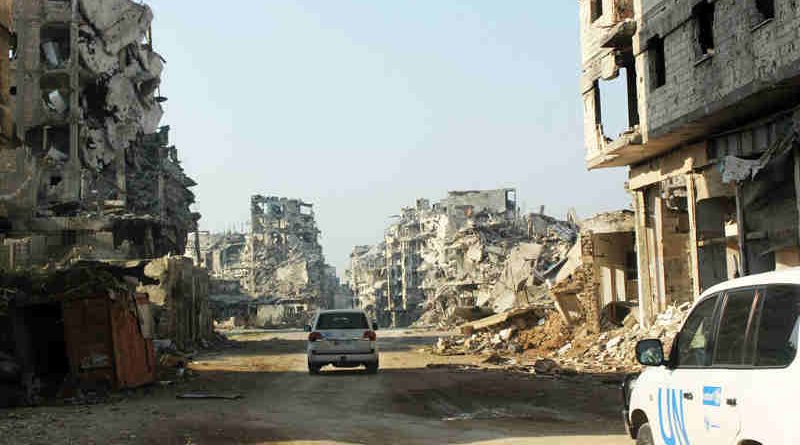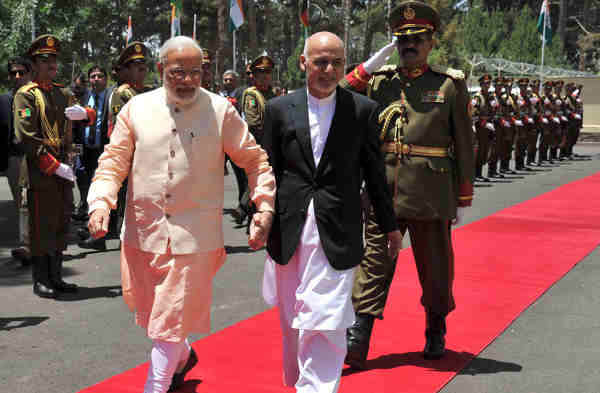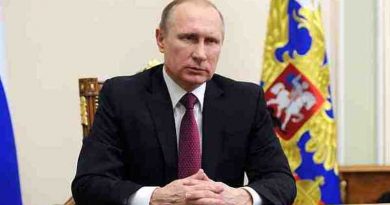How People Forced Dictator Assad to Run Away from Syria

How People Forced Dictator Assad Run Away from Syria
With the toppling of the despotic Assad regime, Syria joins a list of nations where the oppressed people came together to dethrone the cruel dictators.
By Rakesh Raman
After a 24-year-long rule over Syria, autocratic President Bashar al-Assad has been driven out of the country by a rebel group Hayat Tahrir al-Sham (HTS) which took control of the capital Damascus on Sunday (December 8).
It is believed that Assad and his family have taken asylum in Russia ruled by another despot, President Vladimir Putin. After Assad’s ouster, Syrian prime minister (PM) Mohammad Ghazi al-Jalali, agreed to cooperate with the rebels and ensured a peaceful transition of power.
Videos showed the Syrian public entering the presidential palace and taking away items from Assad’s home. As ordinary Syrians are celebrating the end of a cruel rule by Assad, HTS chief Abu Mohammed al-Julani ordered his troops to stay away from the public institutions until they are officially handed over to them by the PM.
With the toppling of the despotic Assad regime, Syria joins a list of nations where the oppressed people came together to dethrone the cruel dictators. Recently, in August 2024, a similar event took place in the South Asian nation Bangladesh.
After months of violence and civil unrest, Bangladesh PM Sheikh Hasina resigned and fled the country on August 5 fearing attack on her by the protesters who entered her home forcibly.
Reports suggest that hundreds of people died in the clashes with security forces while the protesters – who demanded Hasina’s resignation – broke into her residence and vandalized the property after her departure.
People have complained that Hasina had extended her rule in Bangladesh with a rigged 2024 election in which almost the entire opposition did not participate. Now, after her departure, peace is gradually returning to Bangladesh.
The violence in Bangladesh was a virtual action replay of a similar unrest of 2022 in Sri Lanka where belligerent protesters forced Rajapaksa brothers, then President Gotabaya Rajapaksa and Prime Minister Mahinda Rajapaksa, to leave the island nation. Earlier, Afghanistan President Ashraf Ghani faced public anger and fled to save his life as the Taliban took over.
The public anger in Afghanistan, Bangladesh, Sri Lanka, and Syria confirm that in authoritarian nations – where justice systems have collapsed and the crooked politicians win elections fraudulently – violent protests can restore democratic systems.
It is not only Bangladesh, but election frauds are reported in many other autocracies as well. For example, repeated complaints of electronic voting machine (EVM) manipulation to win elections are being filed in India where Narendra Modi has managed to become the PM for the third consecutive term in 2024.
Meanwhile, an appeal has been filed to set up a Special International Tribunal to punish the perpetrators of crimes against humanity and grand corruption crimes in india.
These days, violent public protests are taking place in Pakistan where the dictatorial regime allegedly stole the 2024 general election and imprisoned PM Imran Khan under fabricated charges of corruption and malfeasance.
Supporters of Imran Khan’s Pakistan Tehreek-e-Insaf (PTI) party are clashing with the government-backed security forces to demand his release and hand over the government control to PTI which lost the 2024 election which was allegedly rigged by the ruling alliance of Pakistan Peoples Party (PPP) and Pakistan Muslim League N (PML-N).
Similarly, large-scale protests took place in Venezuela where the incumbent Nicolás Maduro was deceptively declared the winner by the government-controlled National Electoral Council in the 2024 presidential election.
In a statement issued on August 1, 2024, the U.S. Secretary of State, Antony J. Blinken said that the results by the Maduro-controlled National Electoral Council were deeply flawed, yielding an announced outcome that does not represent the will of the Venezuelan people. In other words, the U.S. refused to accept Maduro’s victory.
PEOPLE’S ARMY
As the local security forces terrorize their citizens while the UN agencies as well as other international frameworks fail to protect citizens in tyrannical regimes, commoners are getting united to achieve liberation from oppression.
For example, when Myanmar’s brutal military seized power from the elected government of Aung San Suu Kyi in February 2021, mass public protests took place in Myanmar to demand the restoration of democracy in the Southeast Asian nation.
In order to protect civilians from the military dictators, a people-led Three Brotherhood Alliance or the 3BHA was formed by the armed local ethnic groups in Myanmar.
Reports suggest that the people’s army led by 3BHA has been successful in achieving significant victories against the dictatorial forces and regained control of several towns near the border with China.
All these aggressive campaigns against the tyrants who form the governments either through manipulated elections or oppression of citizens, manifest the fact that only armed or violent protests by people succeed in autocratic nations.
In the current era of authoritarianism, electoral autocracies, and parliamentary dictatorships, peaceful public protests do not succeed. Rather, the peaceful protesters are brutally attacked by the police and security forces which act like cruel mercenaries deployed by the tyrannical rulers to crush the peaceful protests.
Examples of such countries where peaceful protests have failed include Russia, Belarus, China, Hong Kong, India, Israel, Myanmar, Brazil, Thailand, Venezuela, and a number of other places. The peaceful protesters in these authoritarian countries are facing police brutality, arbitrary arrests, torture in custody, unlawful prosecutions, and even death penalties.
As authoritarianism is spreading across the world like a dreadful pandemic disease, police and security personnel behave as gangs of criminals hired by the rulers and court judges work as slaves to those tyrants.
Global leaders in the U.S. and Europe as well as the good-for-nothing UN bureaucrats such as the UN Secretary-General António Guterres and the UN High Commissioner for Human Rights Volker Türk keep making casual, meaningless, and perfunctory statements to condemn the authoritarian regimes. But they do not take any steps to protect people and their fundamental rights.
Unfortunately, there is no justice or relief for the persecuted communities who protest peacefully. There is, however, a ray of hope visible in countries like Bangladesh, Sri Lanka, and Syria where protestors sacrificed their lives to liberate their countries from dictators.
Hundreds of thousands of oppressed citizens in Bangladesh, Sri Lanka, and Syria participated in aggressive and violent street protests that have brought an interim justice to them. The protesting citizens in these countries have overthrown the tyrants who are on the run.
It is being observed that when the protesters raise their voice peacefully, they are beaten by the regime-backed security personnel. But when the protests turn violent, the protestors are allowed to freely move forward to dethrone the corrupt rulers.
Now it is evident that the Bangladeshi, Sri Lankan, and Syrian models of public protests can succeed in many autocratic nations where the dictators are hell-bent to destroy the democratic structures.
The violent protests in Bangladesh, Sri Lanka, Syria, and other autocratic countries have the shades of the French Revolution (1789 – 1799) which led to the Storming of the Bastille and beheading of King Louis XVI who was executed by guillotine to end his monarchy in 1793.
By Rakesh Raman, who is a national award-winning journalist and social activist. He is the founder of the humanitarian organization RMN Foundation which is working in diverse areas to help the disadvantaged and distressed people in the society.






